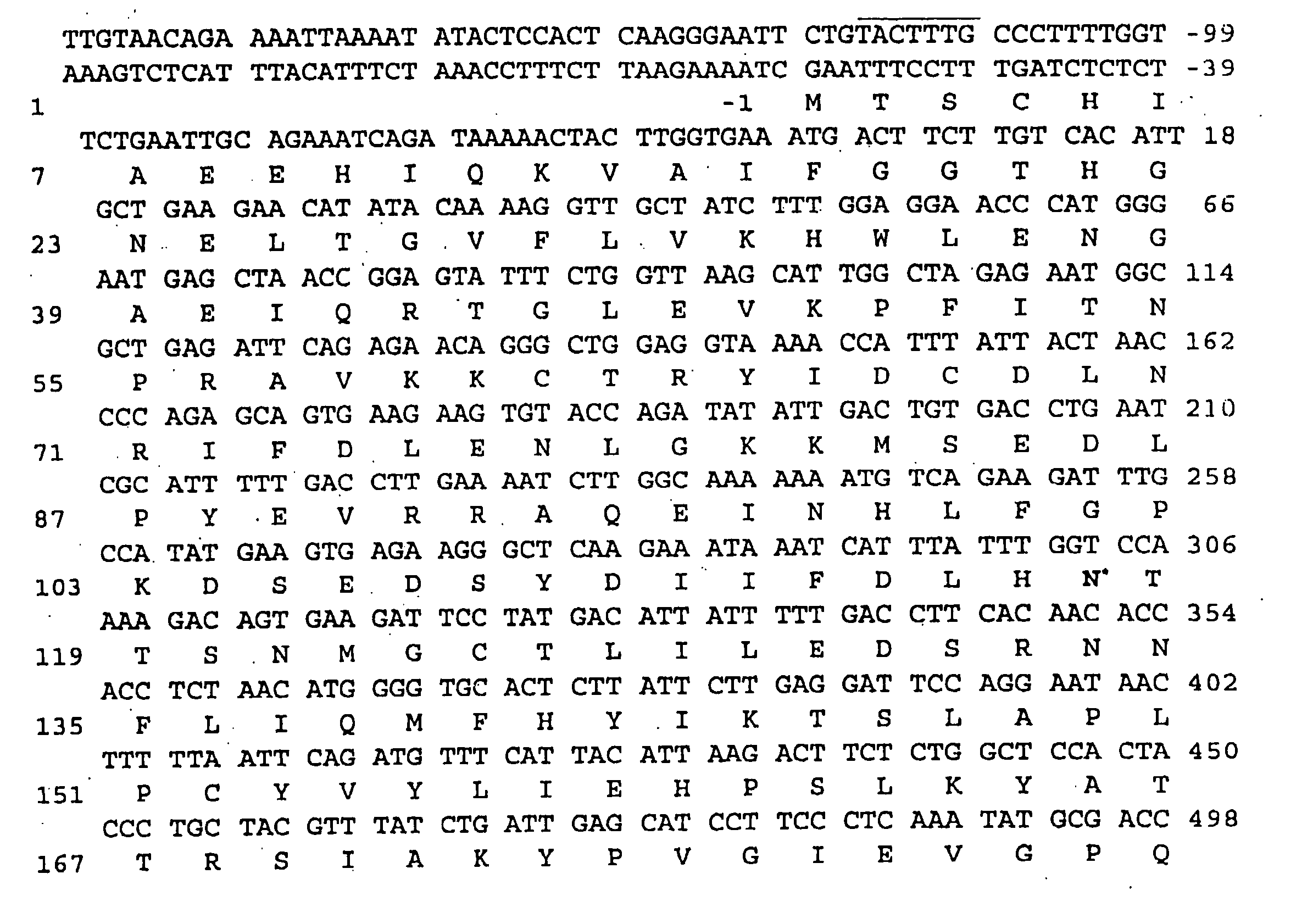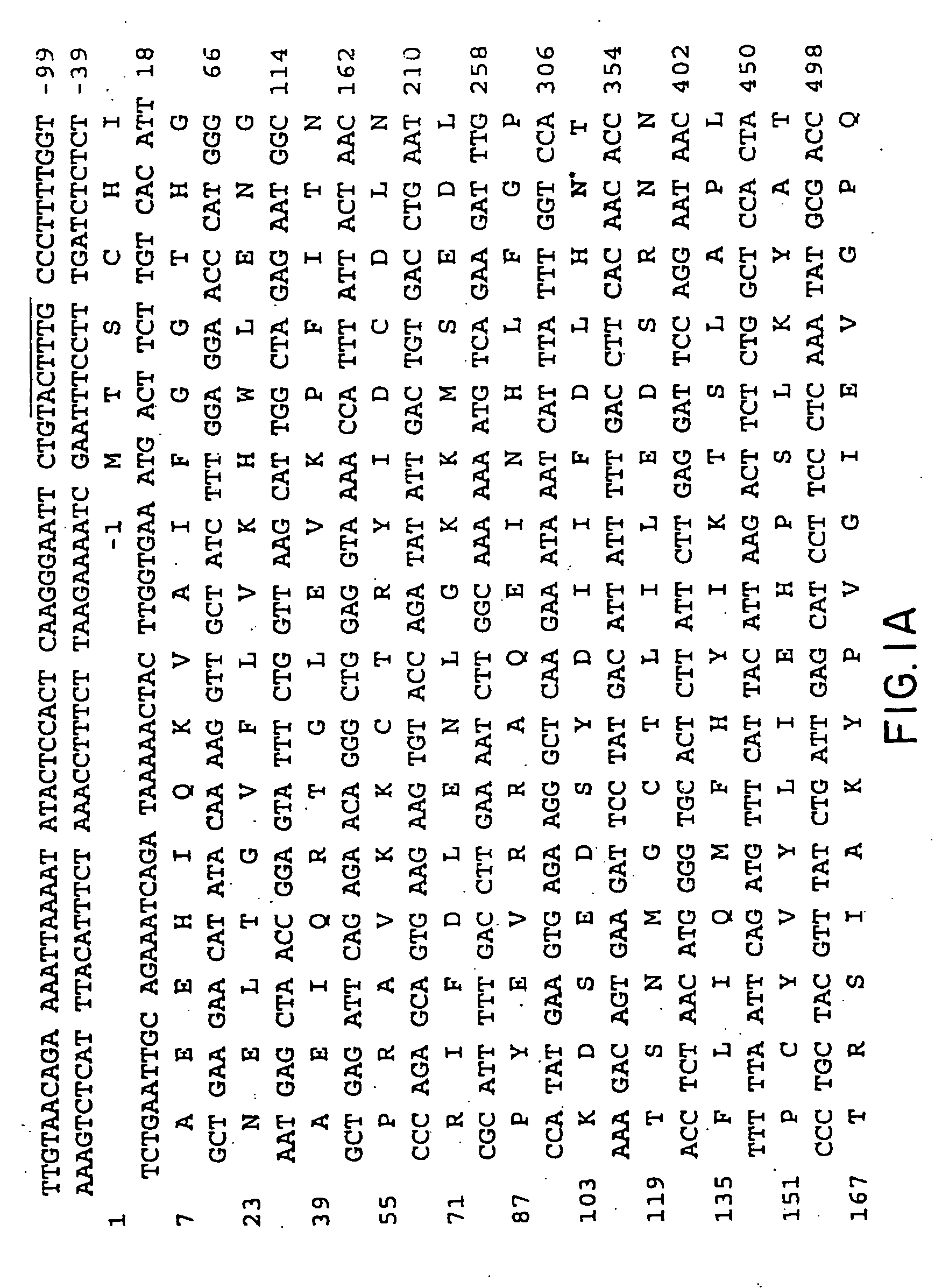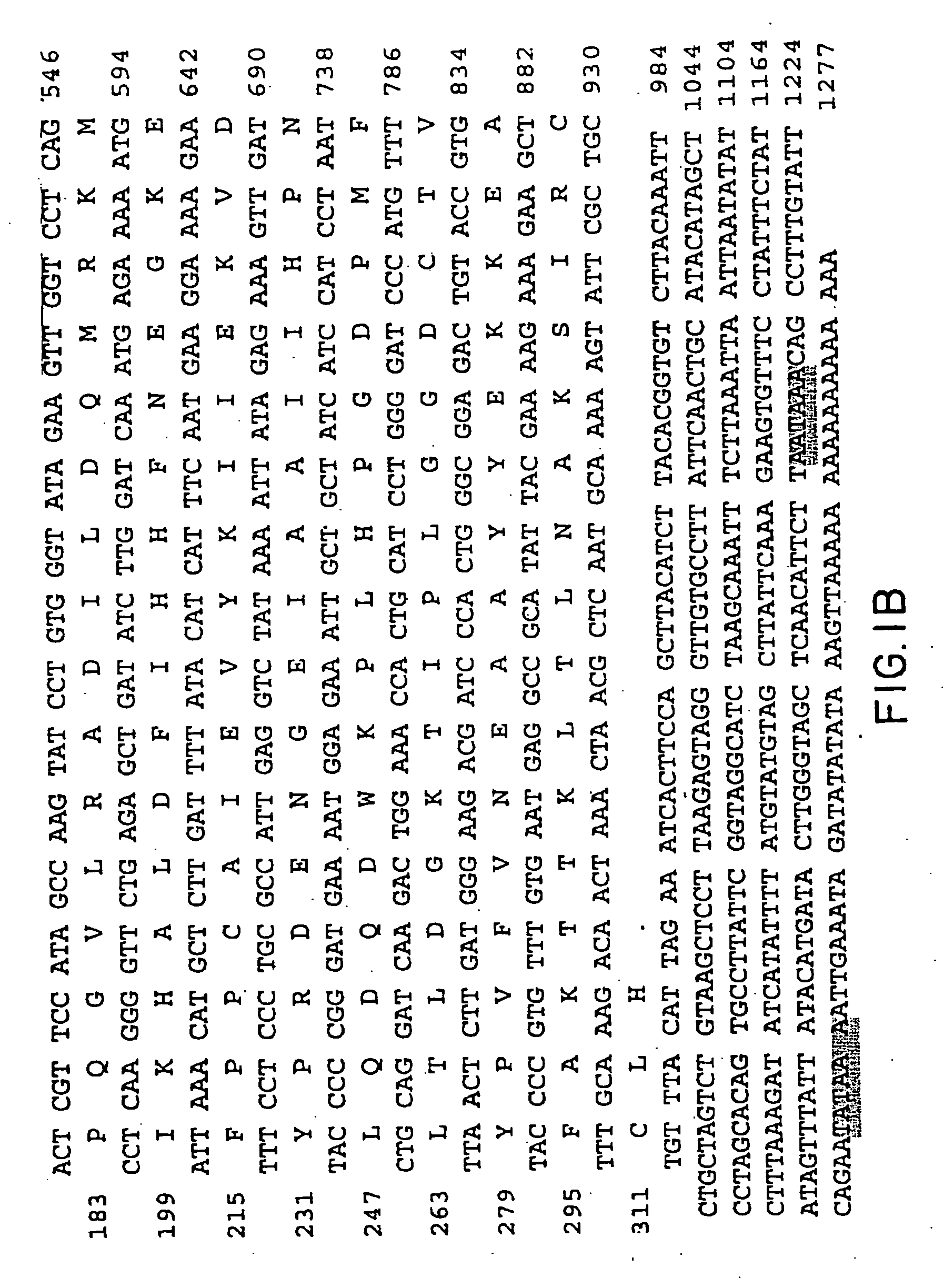Aspartoacylase gene, protein, and methods of screening for mutations associated with canavan disease
a technology of aspartoacylase and canavan disease, which is applied in the field of aspartoacylase gene, protein and methods of screening for canavan disease mutations, can solve the problems of unsatisfactory prenatal diagnosis of cd using aspartoacylase assay
- Summary
- Abstract
- Description
- Claims
- Application Information
AI Technical Summary
Problems solved by technology
Method used
Image
Examples
example 1
Materials, Reagents and Bacterial Strains
[0108] The materials and reagents used in the study were: Immobilon PVDF transfer membrane (Millipore, Bedford, Mass.); restriction enzymes (IBI, New Haven, Conn.; New England Biolabs, Beverly, Mass., Promega, Madison, Wis. and Boehringer Mannheim, Indianapolis, Ind.); Gene Amp RNA PCR kit and AmpliTaq PCR kit for amplification of DNA (Perkin-Elmer Cetus, Norwalk, Conn.); Random primed DNA labeling kit (Boehringer Mannheim, Indianapolis, Ind.); α-[32P]-dNTP's, 3000 Ci / mMole (NEN / Dupont, Wilmington, Del.); RNAzolB kit for preparation of cytoplasmic RNA from cultured cells (Biotecx, Houston, Tex.); Biodyne Nylon membranes for Southern and Northern blots (Pall Biosupport, East Hills, N.Y.); nitrocellulose membranes for screening libraries (Schleicher & Schuell, Keene, N.H.); and Taq Dye primer and Taq dye-terminator cycle sequencing kits for fluorescent labeled automated DNA sequencing (Applied Biosystems, Foster City, Calif.). λUni-Zap (host s...
example 2
Determination of the Amino Acid Sequence of Bovine Aspartoacylase Peptides
[0109] The amino terminal sequence of bovine brain aspartoacylase could not be obtained due to the autolysis of purified protein during storage. Purified aspartoacylase was digested with cyanogen bromide40 and peptides were fractionated on a 16×100 mm Mono Q column (FPLC system, Pharmacia LKB). Peptides were eluted with a 0-30% linear gradient of 1 M sodium chloride in buffer A (25 mM Tris.Cl pH 7.2 and 0.1% sodium azide), at a flow rate of 2 ml / min. The amino acid sequences of four peptides determined at a protein sequencing facility (Yale University, New Haven, Conn.) were as follows:
CN8.1:LENSTEIQRTGLEVKPFITNPRAVKK;CN8.2:KPLIPXDPVFLTLDGKTISLGGDQTXYPXFXNEAAYY;CN30:XKVDYPRNESGEISAIIHPKLQDQ;andCN41:XXXALDFIXNFXEXKE.
example 3
Preparation of Oligonucleotides; Reverse Transcription; PCR Amplification; DNA Probes
[0110] Oligonucleotides were synthesized by phosphoramidite chemistry on a 380B DNA Synthesizer (Applied Biosystems, Foster City, Calif.). First strand cDNA was synthesized by reverse transcription of 20 ng of Poly(A)+ RNA or 4 μg of cytoplasmic RNA with either oligo(dt)n or a gene-specific primer under standard conditions suggested by the manufacturer. DNA amplification41 was carried out in DNA Thermal cycler Model 9600 (Perkin-Elmer Cetus, Norwalk, Conn.). Specific DNA sequences were amplified in 100 μl volumes with 20 ng of cloned or 500 ng of genomic DNA template according to the standard conditions suggested by the manufacturer. The PCR conditions were: 1 cycle of denaturation at 94° C. for 3 min, annealing for 30 sec at temperatures (Tm−4° C.) that were primer-dependant and extension at 72° C. for 1 min; followed by 27 cycles of denaturation at 94° C. for 30 sec, annealing for 30 sec and exte...
PUM
 Login to View More
Login to View More Abstract
Description
Claims
Application Information
 Login to View More
Login to View More - R&D
- Intellectual Property
- Life Sciences
- Materials
- Tech Scout
- Unparalleled Data Quality
- Higher Quality Content
- 60% Fewer Hallucinations
Browse by: Latest US Patents, China's latest patents, Technical Efficacy Thesaurus, Application Domain, Technology Topic, Popular Technical Reports.
© 2025 PatSnap. All rights reserved.Legal|Privacy policy|Modern Slavery Act Transparency Statement|Sitemap|About US| Contact US: help@patsnap.com



